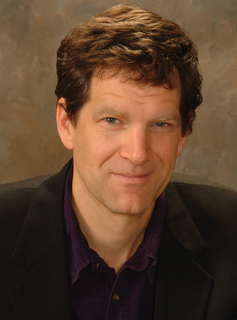
Dear Linux Magazine Reader,
I always perk up when I hear new information about the brain, with the hope that it will improve my own brain, or, at least, provide it some exercise. The brain has been in the news recently. All of our brains improve when we read about brains in the news: Slashdot covered it; the BBC covered it. The news is, they found a 2,000-year-old skull with part of the brain left in it [1]. No one actually has any hope of jump-starting this brain, but it is still interesting to scientists. The skull with part of a brain was found in a muddy pit, where it appeared to have been part of some kind of ritual offering. According to the experts, "There is something unusual in the way the brain has been treated ... ."
You can learn a lot about a culture from how it treats its brains. The ancients Egyptians believed the brain was totally unnecessary for the afterlife; therefore, they extracted it through the nose with a long wire hook as part of the mummification process [2]. Closer to our own time, Albert Einstein's brain [3] was extracted in the hospital where he died by the pathologist who was on call for the evening. The pathologist took photos of the brain and later divided it in several pieces, storing the pieces in two large jars. He had plans to investigate the properties of the brain, or possibly, to get a brain expert to investigate it, but he lost his job at the hospital, and the brain was left in his basement until his ex-wife threatened to throw the jars away if he didn't move them.
At that point, he took the brain on the road, landing in Lawrence, Kansas - home of this very magazine - where he worked in a plastic extrusion factory. It was there that the pathologist befriended another famous resident of Lawrence - beat writer William S. Burroughs, who was fascinated with the story of the brain and reportedly bragged to his friends that he could "... have a piece of Einstein's brain anytime he wanted." An investigative reporter re-introduced Einstein's brain to the national scene in 1978, and since then, it has appeared in both pop culture books and scientific studies.
Futurist Ray Kurzweil and his followers believe that brains and computers will start to converge, and one day we'll all have virtual brains. The virtual brains will make us immortal because we will "... instantiate ourselves into our computer technology" [4]. When we die, our virtual brain will keep on executing in a futuristic form of cloud computing.
We are a practical magazine, and if Ray Kurzweil or one of his followers sent me a proposal, I would ask for some details. Will this brain be executing as a virtual process in a data center? Who will pay for the processor time? Will the data center send the family a bill each month for keeping this process running? What will this process do when no one is watching it? If the family does not believe the process is receiving sufficient resources, will they be able to check the process out of the data center and execute it on a futuristic home PC? Will the process care if it gets turned off and turned back on again? For a minute? For a year? For a thousand years? Will the process care if it never gets turned on in the first place and we just let this person with the virtualized brain rest in peace the old fashioned way?
Sometimes I wonder whether the future will bring new frontiers for the brain, or only more shades of the same old gray.
| INFO |
|
[1] `Oldest Human Brain' Discovered: http://news.bbc.co.uk/2/hi/health/7777385.stm
[2] The Mummy's Brain: http://www.jimloy.com/egypt/mummy.htm [3] "The Long Strange Journey of Einstein's Brain," http://www.npr.org/templates/story/story.php?storyId=4602913 [4] Kurzweil, Ray. The Age of Spiritual Machines. Viking Press, http://us.penguingroup.com/static/packages/us/kurzweil/excerpts/chap6/ch6botframe.htm |